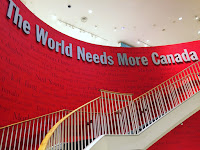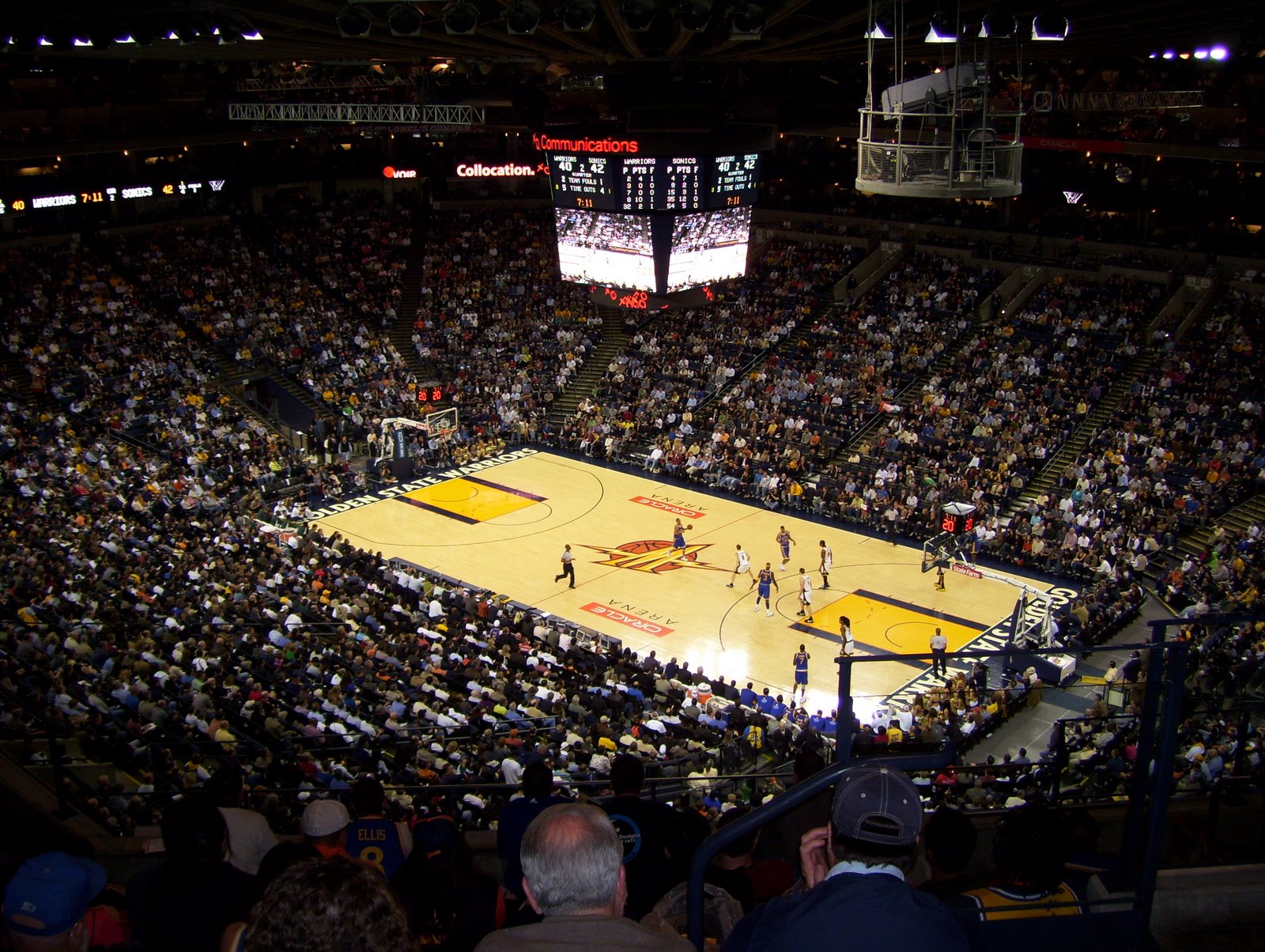 |
| Indigo bookstore in Eaton Centre/Mall |
 |
| Dundas Square |
 |
| Hockey Hall of Fame |
 |
| Ryerson University Student Centre |
If diversity, walkability, and integration are your top desires, then Toronto is your destination.
Want a donut? Try Tim Horton's or Von's. Tim Horton's is
Canada's version of Starbucks, but with more food options. Von's is more specialty and expensive, but where else can you get a Homer Simpson donut? Canadians are divided about Tim Horton's coffee, but everyone seems to have an opinion. Try the dark roast, regular (one cream, one sugar), and the latte. McDonald's continues to make the best black coffee, followed by Dunkin' Donuts and Tim Horton's, but I was surprised how much I liked Tim Horton's plain non-fat latte and how much I disliked all its other "specialty" espresso drinks. (My dream latte was too sweet, whereas the mocha was too watery.)
Toronto is a walkable city except in its harshest winter months, December and January. I visited in mid-February and wanted to slap the many people who claimed it was too cold (Dear Americans: if the sun is out, it's not that cold, even if there's ice on the ground. Put on a beanie, gloves, and a Canada Goose or thick Columbia Sportswear brand coat, and you're good to go. I brought waterproof Bogs shoes and only wore them two of my eighteen days). The "touristy" subway station is Union, and from there, you can head in any direction to see the sights.
Public transportation is decent but woefully inconsistent. Some stations need physical mini-tokens, while others will accept certain cards but not others. Toronto's transportation system is nowhere near the modernity of Taiwan's, Singapore's, or Japan's, but it's serviceable. Upgrades are sorely needed; as of today, Bangkok's trains are more consistent to use. Another tip: Toronto's subways require you to know which direction you're going (North, South, East, or West), and you should determine the next station on your way to increase your chances of not getting lost. Unlike most other systems, some of the signs--when they exist--point you to the next station rather than the last one on the line.
Toronto also has buses, which are an easy way to see parts of the city you might not otherwise walk. One of my buses took me past a small harbor, and I saw a few boats and clean water. You can get a weekly pass for buses and trains, but it's only good from a specific Monday to the next Monday, so be careful of the timing of your purchase--or get a Presto Card/Pass and load up as needed. Toronto's public transportation system is a mess, but it works once you get used to its quirks. (
Update: Surprisingly,
Montreal has a better subway system than Toronto.)
The most common spots on a savvy tourist's checklist are the Space Needle and surrounding downtown area;
Aga Khan Museum; Greektown; St. Lawrence Market (come hungry); Hockey Hall of Fame; Chinatown (not a must-see, but still fun); Kensington Market (a must-see); and Dundas Square. The Distillery is trendy, but I didn't like it--it's just a bunch of hipster shops with modern art thrown around old industrial architecture. (I was tempted to say, "You're trying too hard, Canada," but most Canadians are too damn polite to ever justify casting aspersions in public.)
My favorite spots were Queen St. (indie shops and interesting architecture), Kensington Market (very diverse and colorful), Dundas Square (similar to NYC's Times Square, but with a more relaxed vibe), Niagara Falls, and the extended Greektown area (food and coffee). Bloor St. West at the Dufferin subway station also has lots of indie shops. And I especially enjoyed sending a letter, old-style, with a quill at Toronto's first post office.
Two hours driving outside of Toronto is Niagara Falls, one of the most interesting sights you'll ever see. I spent hours walking around the area, which extends quite far and over a small bridge that no one else but runners seem to use. Nearby the waterfall, just sucking in the chilled air is a pleasure--it cleared up my lungs immediately, and I kept craving more. You can walk around near the USA/Canada border if you're into super-touristy stores--your kids will like it, but you probably won't.
 |
| The beautiful Niagara Falls |
I'll attend my first
Toronto Raptors game on March 1, and I hope to see Serge Ibaka play. Lowry is 30; DeRozan is 27; Carroll is 30; and Ibaka is 27. The nucleus for a future championship is there. For 2017, the team will probably experiment with different combinations to see which players adapt best to the other four, though the best strategy might be to change the fifth player as soon as his defensive intensity diminishes.
Speaking of defense, it's Carroll's bread-and-butter--he comes out of the Mizzou trapping school--but he can score, too, and I'm worried Ibaka and Carroll will take a long time to figure out their offensive roles. Good coaching will be key. The pick and roll should be used, because Ibaka can hit the short-range jumper consistently. P.J. Tucker is a recent pick-up whose defensive skills can give Carroll bench-time as needed. (Interestingly, Toronto drafted Tucker out of the University of Texas at Austin in 2006 and later waived him.)
I'll end as a fictional white ACC (the American college conference, not the Air Canada Centre) coach: "You want to play with the four best players in the East? I need defense, son. The second anyone slacks off, the next man enters until we see which one of ya'll best resembles Dennis Rodman or Bruce Bowen. Let's get a championship for Canada, eh?"





